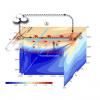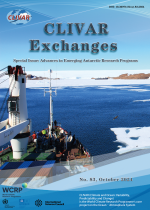The El Niño-Southern Oscillation (ENSO) is the dominant climate phenomenon affecting extreme weather conditions worldwide. Its response to greenhouse warming has challenged scientists for decades, despite model agreement on projected mean state changes. Recent studies have provided new insights into the elusive links between ENSO and Pacific climate mean-state changes. The...


























